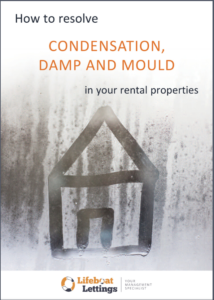
Being a landlord can be challenging in today’s climate and you need all the help you can get. We have compiled our Ten Top Tips for Landlords to give you a helping hand.
Tip number 1: Late winter and early spring is the best time to do a quick spot check on the externals of your rental properties – but anytime is a good time. Conditions of gardens, outbuildings, fences, gutters can often all be checked visually from the roadside; these items can sometimes take a battering during the stormy winter weather. It’s not always necessary to make an appointment with the tenant if you are just doing a drive by or walk by of the property but if anything is spotted then a follow up visit for a closer inspection and remedial works can be arranged.
Tip number 2: Next in our ten top tips for landlords: if you are managing your own properties invest in a property management system or software package. This is applicable even if you only have a few properties. This doesn’t have to be an expensive professional or semi-professional system; there are many cost-effective or free packages out there, some of which are available through the major landlord associations. Having a proper property management system gets you into the habit of keeping on top of paperwork and renewals amongst other things. In an environment of increasing legislation being organised is critical.
Tip number 3: Treat your rental portfolio like a business. Even if you have a full time profession other than property, it is important to be professional at all times when dealing with your portfolio. If you approach activities, meetings with tenants, dealing with tradespeople in a professional manner then there is more chance of you being treated professionally and your properties being treated with respect.
Tip number 4: Do not be tempted to skimp on referencing and checking the suitability of your tenant. With the multitude of tasks to be completed and legislation the needs to be complied with, landlords are often pushed for time when it comes to letting their property. Couple this with the costs of the process and it is tempting to cut corners. This will be even more of a pressure when the tenant fee ban comes into force in the summer. It is absolutely imperative that you do you due diligence on your tenant. Many insurance companies and mortgage lenders require formal referencing to be conducted but that aside, it makes good business practice to do formal referencing. This is both to make sure you find a tenant that is going to look after your property but also because landlords have a duty of care to make sure that the tenancy is affordable for the tenant.
Tip number 5: Make sure you keep your property well maintained. Your property doesn’t have to be a palace but it is important that it is presented to the market in a good lettable condition with all services functioning. If you do this, and attend to breakdowns quickly, then your tenant is more likely to look after your property.
Tip number 6: Please use a government recognised and approved tenancy deposit protection scheme. Deposits must be protected within 30days of receipt.
Tip number 7: Letting out property is not a ‘get rich quick scheme’. Regard your property portfolio/business as a long term project. Be prepared to commit to larger scale refurbishment projects or investments when necessary: e.g. new central heating systems, kitchens/bathroom, double glazing and even total re-modelling or layout changes on your properties. Over the long term this reap rewards with lower voids and the ability to command higher rents and secure tenants who will look after your property.
Tip number 8: Be prepared to allow pets and children in your properties. It is still commonplace for some landlords to not allow pets or children in their properties. However this is excluding a massive demographic of potential tenants. By careful consideration to suitability – such as not overcrowding your property or considering allowing dogs when your property has an outside space – it is possible to strike a balance between acceptable wear and tear during a tenancy and not having too long a void period whist waiting for your ideal tenant to come along.
Tip number 9: Make sure your property has a valid EPC at the time of advertising to let. The EPC band should be E or higher. If your property is band F or G, you will have to make sufficient improvements to the property and get a new EPC before letting it.
Tip number 10: The final and most important of our ten top tips for landlords: if you decide that you do not want to self-manage the property, make sure you choose a reputable lettings agent with a proven track record in the property industry. It is important that the agent understands your specific requirements. Remember that the letting’s agent’s first responsibility is towards the landlord and that they will be looking after your property for the duration of the tenancy and making sure that suitable tenants are found.
Thank you for taking the time to read our ten top tips for landlords. Lifeboat Lettings is a family run specialist Lettings Agency based in East Brabourne near Ashford. We provide full property management, and tenant find only services for HMO / co-living houses and single family properties throughout Kent, specifically concentrated in the towns and villages of central and South East Kent. Our company is owned and run by established and experienced property investors. If you are a landlord who wants to know more about our services then please get in touch.




